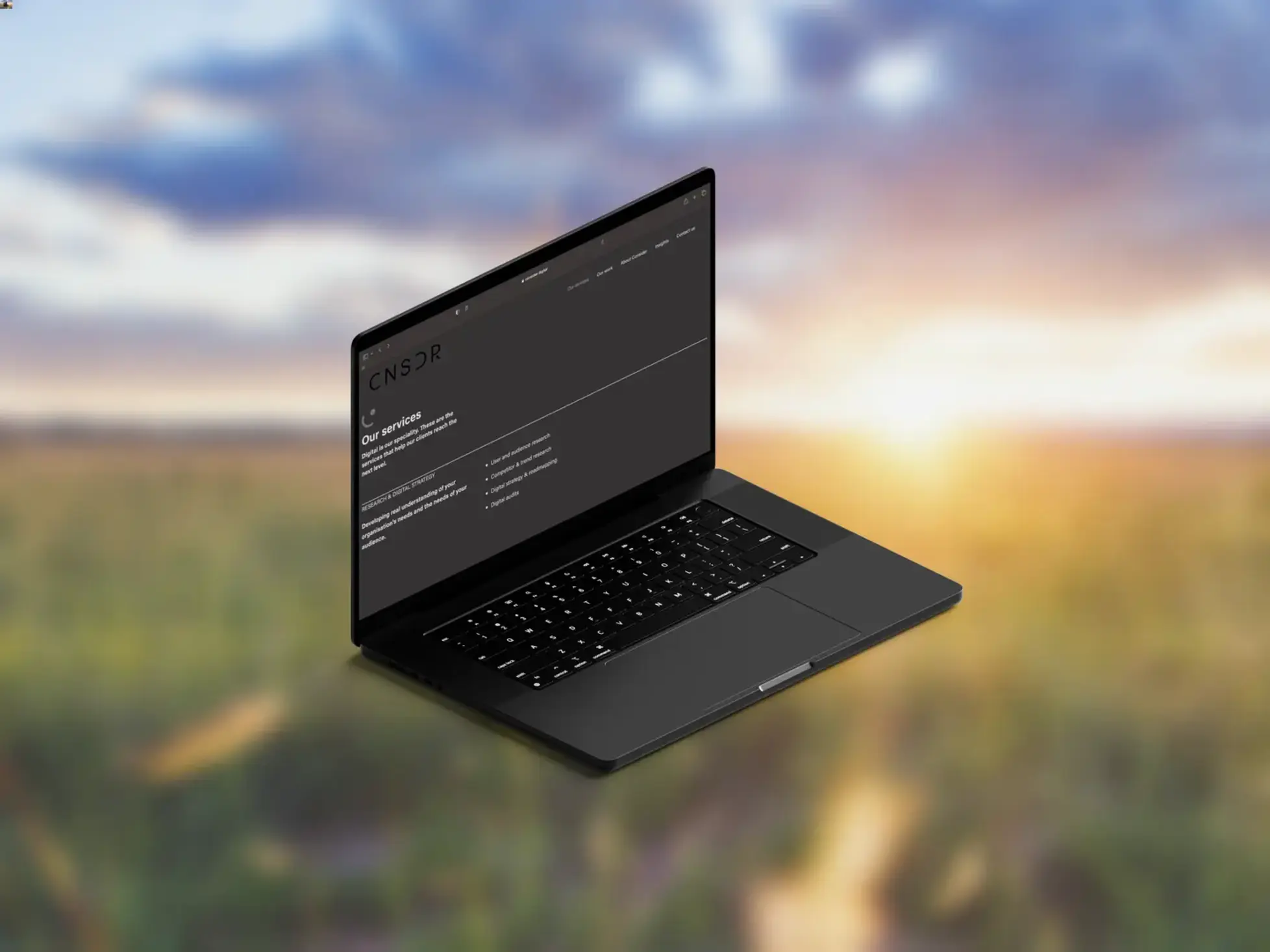
We’re committed to reducing the environmental impact of the websites we build and manage. That’s why we created the Carbon Offset Your Website service. Why we continue to research and publish data on digital sustainability.. Unlike global calculators that rely on generic averages, our approach uses UK-specific data so that our UK based clients can measure and reduce their website emissions more accurately.
Below we explain the numbers we use when testing websites, the reasoning behind them, and our sources.
1. Data Required for a Website Load
Assumption: 0.45 MB average per page load
This figure is based on analysis of the BBC website, which is widely considered a benchmark for fast, optimised news websites.
Why this matters:
- Every website is different, and many are significantly heavier than this benchmark.
- When we audit a client’s site, we measure their actual average page weight across key pages (homepage, product pages, blog, checkout, etc.).
- This ensures our results reflect the reality of their site, not just a fixed assumption.
Reference sources: HTTP Archive, BBC R&D, Website Carbon Calculator methodology.
2. Energy Intensity of Internet Usage
Assumption: 1.8 kWh per GB of data transferred
This figure represents the average energy used to transmit 1 GB of data through data centres, networks, and end-user devices.
Why 1.8?
- Studies vary from 0.2 – 5 kWh/GB, depending on scope (data centres vs. full internet pathway).
- We have chosen 1.8 kWh/GB, a conservative and widely-cited midpoint used by organisations such as the Shift Project and the International Energy Agency (IEA).
- By using this figure consistently, we provide a fair benchmark for before/after comparisons of website optimisation.
Reference sources:
3. UK Carbon Intensity of Electricity
Live data: ~180 gCO₂ per kWh (2025 value, varies daily)
This is the most important local factor in our model. The carbon intensity of electricity in the UK grid changes every day depending on how much power comes from renewables, nuclear, and fossil fuels.
Why UK-specific?
- Global calculators often use ~475 gCO₂/kWh, which reflects the world average.
- The UK’s grid is significantly cleaner thanks to renewables and coal phase-out.
- Using UK-specific data provides a more accurate reflection of website emissions for UK businesses.
We source our data directly from MyGridGB and update it monthly.
Reference sources: MyGridGB, UK National Grid ESO.
4. Calculation
The formula we use is:
Monthly Website Carbon Output (gCO₂) =
(Monthly data transfer in GB) × (Energy intensity, kWh/GB) × (UK carbon intensity, gCO₂/kWh)
Example:
- A site with 10,000 monthly visits
- Average page size: 0.45 MB
- Monthly data transfer = 4.5 GB
- Energy intensity = 1.8 kWh/GB
- UK carbon intensity = 180 gCO₂/kWh
= 1,468 gCO₂ per month (1.47 kgCO₂)
5. What We Include (and What We Don’t)
✔️ Transmission energy (data centres, networks, devices)
✔️ UK electricity carbon intensity (updated monthly)
✔️ Page weight measured per site, not generic averages
❌ Embodied emissions of devices, servers, or manufacturing
❌ Non-UK electricity mix (unless the client’s users are predominantly elsewhere)
❌ Other lifecycle factors (e.g. end-user behaviour beyond page loads)
This means our results are a realistic operational footprint of your website’s data transfer — perfect for tracking and reducing impact over time
6. Why This Approach?
- Transparent: Every assumption is explained and sourced.
- UK-specific: Unlike global averages, we use live UK grid data.
- Actionable: Results are measured before and after optimisation, so you can see real improvements.
Our goal is not just to measure impact, but to help organisations reduce it — through faster, leaner, and more sustainable websites.
✅ Next Step: Get your website tested.
Book a Website Sustainability Audit with Consider Digital to benchmark, optimise, and offset your website’s emissions.
Ready for a conversation?

